Vetworks is the leading provider of respiratory training courses for poultry professionals
Training on respiratory health in poultry: our respiratory disease training focuses on pathology, practical aspects of diagnosis, prevention and treatment of respiratory disease.
Vetworks is proud to offer an in-depth course on respiratory diseases in poultry. This unique course covers both the academic state of the art and the practical experience you need to put what you learn into practice on your farm. You will gain a complete overview of the pathology, diagnosis, prevention and treatment of respiratory diseases, as well as practical experience in diagnosing and treating these diseases.
This course is a must for anyone who wants to improve their knowledge of respiratory diseases in poultry and learn how to prevent and treat them effectively.
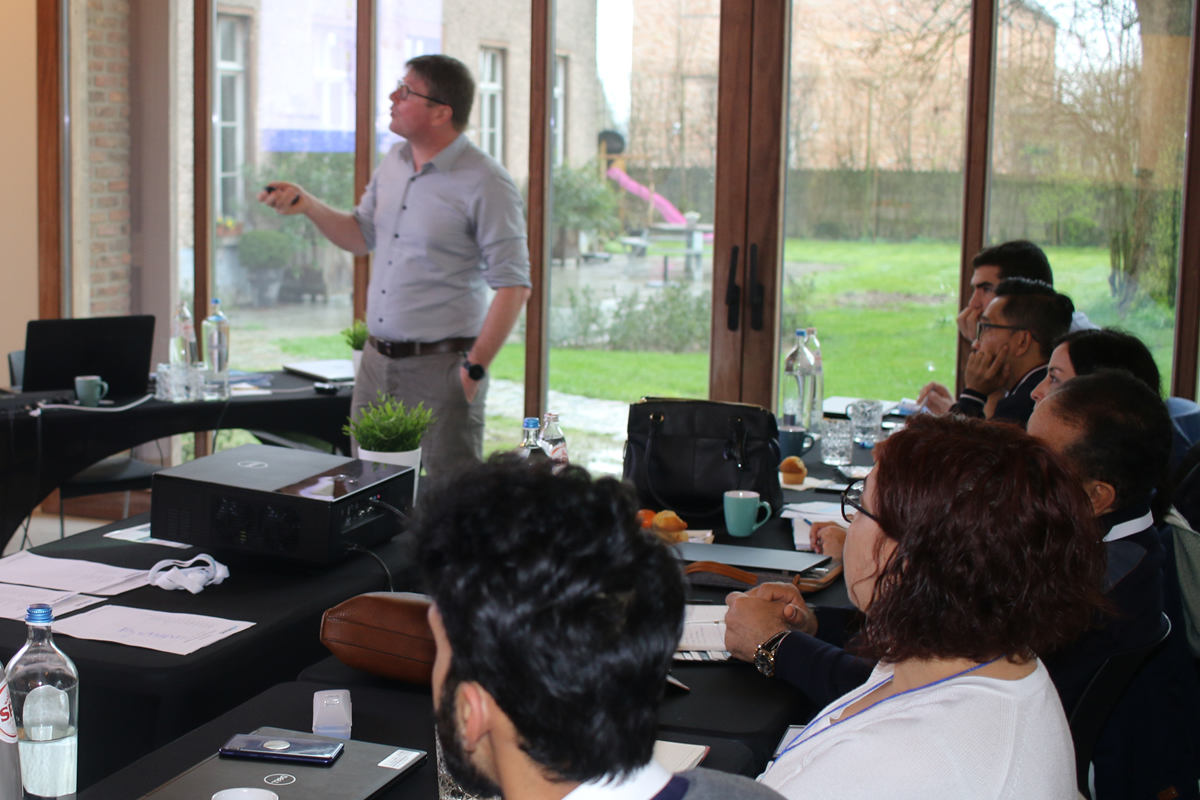
Respiratory diseases in poultry
Respiratory diseases are a major cause of mortality in poultry.
Therefore, it is essential for anyone working with chickens to have a good understanding of how to prevent and treat these diseases. Vetworks offers a comprehensive three-day course on respiratory diseases in poultry, covering everything from the latest academic research to practical exercises.
The course is designed to give delegates a complete overview of the pathology, diagnosis, prevention and treatment of respiratory disease, with plenty of opportunities for hands-on learning. Whether you want to expand your knowledge or simply learn more about how to effectively prevent and treat respiratory disease in poultry, this course is an essential resource.
Register today for our respiratory health in poultry training and gain the skills you need to keep your flock healthy and successful.
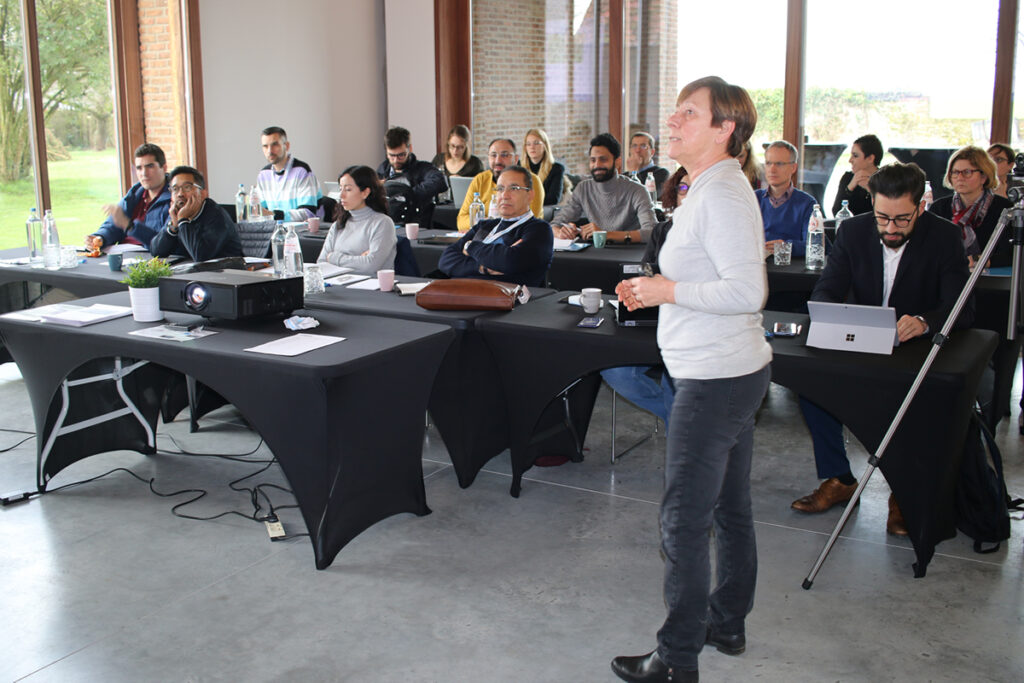
What is respiratory health in poultry and why is it important ?
Respiratory health is an important aspect of poultry health. Poultry are susceptible to a variety of respiratory diseases that can cause significant mortality and morbidity.
Respiratory diseases are often associated with poor housing conditions, such as overcrowding, poor ventilation and accumulation of dust and ammonia. Infectious agents such as viruses, bacteria and fungi can also contribute to respiratory disease. To maintain respiratory health, it is important to provide good housing conditions and to vaccinate poultry against common respiratory diseases.
Respiratory diseases can have a significant impact on poultry production, so it is important to take measures to prevent and control them.

Why you should attend Vetworks’ respiratory education course
Poultry are susceptible to a range of respiratory diseases that can lead to significant losses in productivity. To minimise the risk of disease, it is important that farmers and veterinarians have a good understanding of respiratory health in poultry.
The Vetworks Academy training course aims to provide participants with the latest information on respiratory health in poultry, including the latest research on diagnosis, treatment and prevention. The course also covers specific topics such as biosecurity and vaccination programmes. This is an important training course for anyone involved in the poultry industry. As places are limited, early registration is recommended.
What to expect from our poultry respiratory health training course
At Vetworks, we understand the importance of respiratory health in poultry. That’s why we offer a comprehensive training course that covers everything from the basics of poultry anatomy to the latest advances in disease prevention.
Our training course is aimed at both new and experienced poultry farmers and can be adapted to your specific needs. In addition to lectures and practical demonstrations, you will also have the opportunity to participate in group discussions and ask questions of our expert instructors.
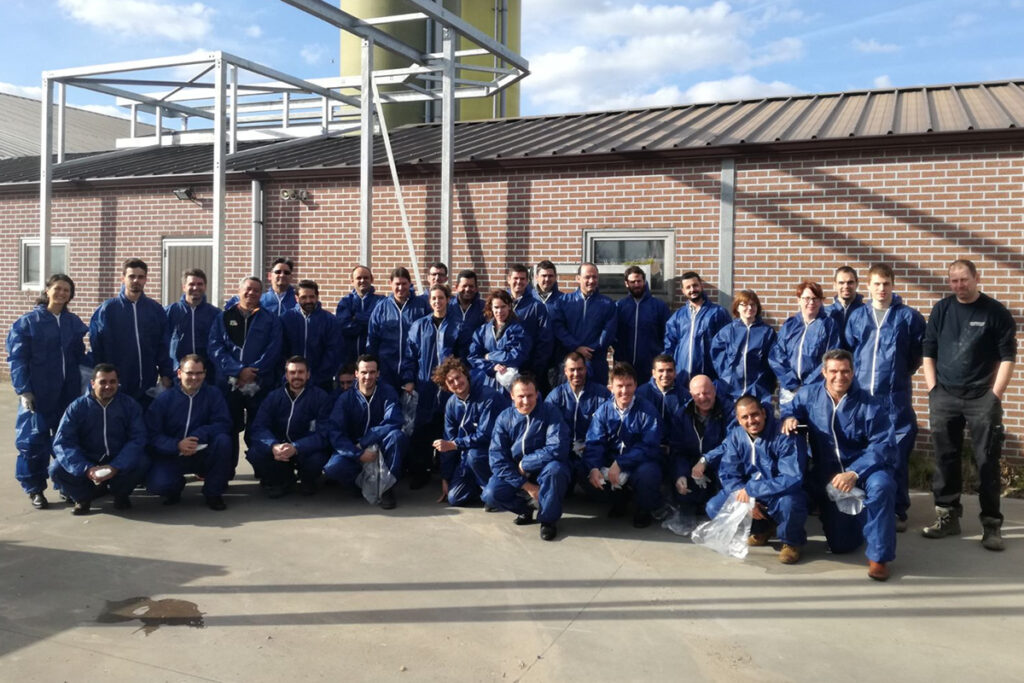
Why is respiratory disease management in poultry important for your business ?
Respiratory diseases are one of the most common health problems in poultry. In fact, they are so common that most farmers will face them at some point.
While respiratory diseases can affect any type of poultry, they are particularly common in chickens and turkeys. There are many different causes of respiratory disease in poultry, including viruses, bacteria, fungi, parasites and even environmental factors.
Symptoms can vary depending on the cause, but often include coughing, sneezing, rales (abnormal lung sounds), increased respiratory rate and increased mucus production. If left untreated, respiratory disease can spread quickly in a herd and lead to high mortality.
In addition, respiratory disease can increase the birds’ susceptibility to other health problems, such as pneumonia. For these reasons, it is important to watch for signs of respiratory disease on your farm and treat affected birds promptly.
In our training course on respiratory health in poultry at the Vetworks Academy, you will learn how to correctly recognise and treat respiratory diseases. The course covers the different causes of respiratory disease, their symptoms and effective treatment. You will also learn how to prevent respiratory diseases in the first place.

Topics included in the respiratory health training for poultry
General introduction to respiratory problems in poultry
Respiratory health is an important part of poultry production and it is important that farmers have a good understanding of the problems that can occur. The training on respiratory health in poultry covers a range of topics including: an introduction to respiratory issues in poultry, the main types of respiratory disease, how to recognise and diagnose respiratory problems and best management practices to prevent and treat respiratory disease.
Overview of poultry respiratory anatomy, immunity and physiology
The respiratory system of poultry is an amazing thing. It is made up of many intricate parts that serve to filter the air and keep the bird healthy. The system includes the nose, trachea, bronchi and lungs. To understand how the system works, it is important that you first look at bird anatomy. The training on respiratory health in poultry covers this topic in depth.
Next, the training looks at immunity and physiology. This part of the training is important to understand how diseases affect the respiratory system and what can be done to prevent them.
Finally, the training on respiratory health in poultry discusses best practices for managing respiratory health in birds. This includes everything from housing to nutrition to ventilation.
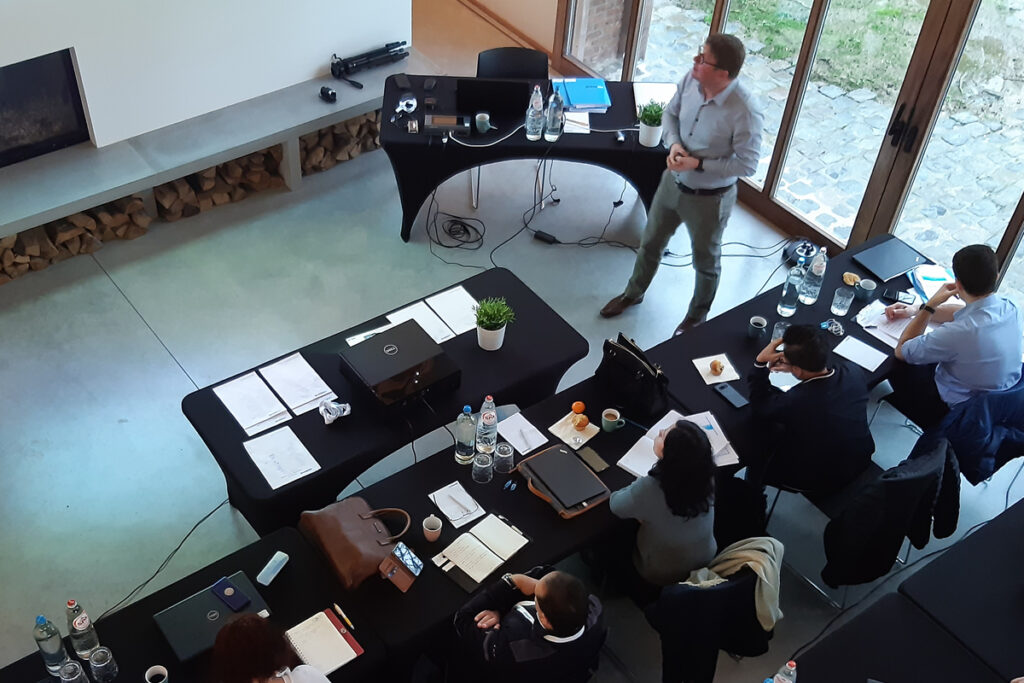
Management factors that influence respiratory health
Respiratory health in poultry is a fascinating topic that encompasses many different management factors.
Some of these factors are: housing, environment, ventilation, nutrition, immunisation and biosecurity.
Each of these management factors can affect the respiratory health of poultry in different ways. For example, good housing can help prevent the spread of disease, while proper ventilation can reduce airborne dust levels. By understanding these different management factors, poultry farmers can create an environment that promotes respiratory health and prevents disease.
Biosecurity
In general, biosecurity refers to practices designed to prevent, reduce or eliminate the introduction and spread of disease. Concern about the spread of animal diseases, especially those of foreign origin, is high in the livestock industry. Animal diseases can affect any type of farm regardless of its size.
As we all know, poultry production is a huge industry and ensuring the respiratory health of chickens is therefore critical to both animal welfare and profits. This is why biosecurity measures are so important.
Poultry farmers must carefully protect their flocks from disease, and that starts with preventing outside contaminants from coming into contact with the animals. Visitors to poultry farms must take precautions, such as putting on clean clothes and sterilising their equipment. Farmers must also maintain strict hygiene standards in chicken houses, including regular cleaning and disinfection.
More details about possible biosecurity measures are discussed in the training.
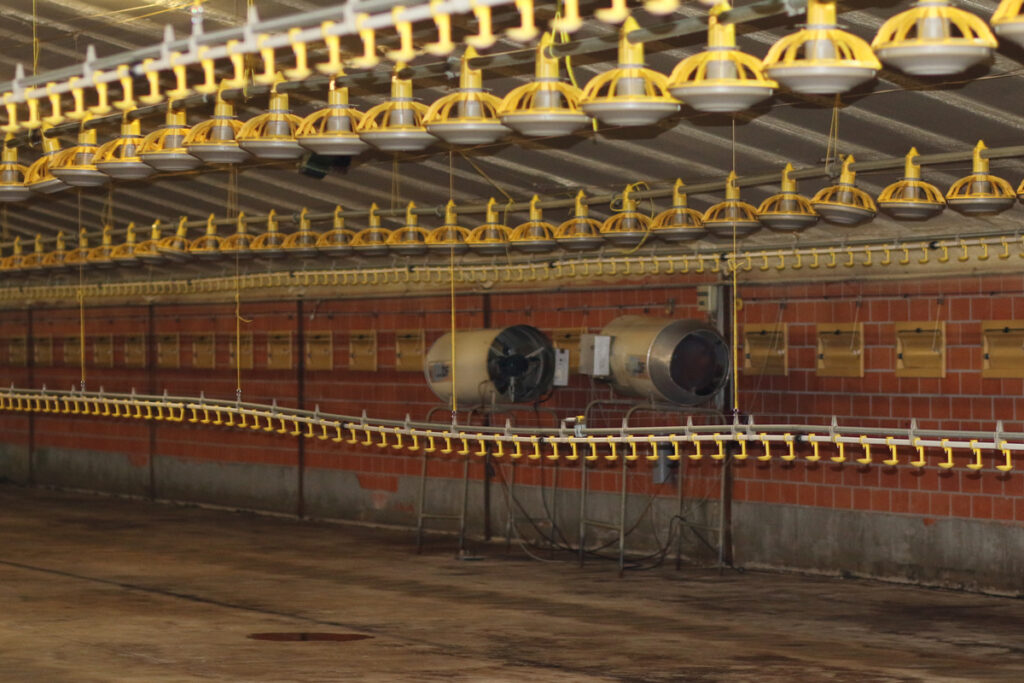
Diagnostic tools & sampling overview
To ensure our chickens are healthy and productive, we need to proactively monitor and manage their respiratory health. The first step is to understand the diagnostic tools and sampling methods. In this training, you will get an overview of these tools and learn how to properly collect the samples.
We will also discuss how to interpret the results of these tests so that we can make informed decisions about the best treatment for our birds.
Mycoplasmosis (MG/MS) and CRD complex: diagnosis, surveillance, prevention, treatment.
Mycoplasmosis, or MG/MS, is a disease that can have devastating effects on a flock.
CRD complex is another respiratory disease that can also cause significant damage to a flock. Both diseases are caused by different types of bacteria and can be diagnosed with different tests.
The treatment for both diseases is different, so it is important that you know which disease your flock has before you start treatment. Prevention is the best medicine for both diseases, and there are a number of ways to prevent them from infecting your flock. In the respiratory health for poultry training you will learn everything you need to know about these diseases, and how to diagnose, treat and prevent them.

Pathology, diagnosis, monitoring and prevention of IB
Infectious bronchitis (IB) is a contagious and very serious viral respiratory disease in poultry. It is one of the most common viral infections in chickens around the world. The virus is thought to cause urogenital tract disease in birds in addition to respiratory disease.
This training is essential for anyone working with poultry as it can help to reduce the spread of this disease.
The pathogenesis of IB is complex and not fully understood, but it is known that the virus affects the trachea, bronchi and lungs of chickens. Symptoms include coughing, sneezing, gasping for breath and increased mucus production. Diagnosis is usually made based on clinical signs and symptoms, but laboratory tests may also be performed to confirm the presence of the virus.
Treatment focuses on relieving symptoms and supporting the respiratory system.
Prevention is the best way to control IB and strict biosecurity measures should be taken to reduce the risk of infection.
The respiratory health training will cover all these topics in detail and will provide important information for anyone working with this disease.
Practical digital visits – Laboratory tour: Laboratory techniques; Common sampling pitfalls
The Practical Digital Visits – Lab Tour course covers laboratory techniques and common sampling pitfalls. This is an important topic for anyone working in a poultry lab as it helps to ensure that accurate samples are taken and common mistakes are avoided.

Avian influenza and Newcastle disease
As any poultry farmer knows, Avian influenza and Newcastle disease can decimate a flock.
These highly contagious diseases can spread rapidly, cause severe respiratory disease and often lead to death. Farmers must therefore be particularly vigilant in preventing and treating these diseases.
The respiratory health training provides farmers and other poultry professionals with the latest information on these diseases, as well as practical tips on how to protect their flocks. The programme includes discussions on the signs and symptoms of these diseases and the best ways to prevent and treat them. The programme also provides an overview of the current research on these diseases so that you can keep up to date with the latest developments.
TRT, ILT and avian pox: pathology, diagnosis, surveillance and prevention
This part of the training provides an overview of the pathology, diagnostics, surveillance and prevention of TRT, ILT and avian pox.
Colibacillosis
Colibacillosis is a secondary infection caused by inhalation, especially in young broilers and chicks. The severity of this septicaemic disease is due to a combination of factors including virulence and exposure to aerogenic infections.
Respiratory health is an important aspect of poultry management and there are several diseases that can affect the respiratory system. Colibacillosis is one of these diseases and is caused by a bacterium called Escherichia coli. Symptoms of colibacillosis include difficulty breathing, lethargy and weight loss.
Prevention is the best approach. Ways to prevent colibacillosis include good biosecurity practices, vaccination and immediate treatment of sick birds. By familiarising yourself with the signs and symptoms of respiratory disease, you can help keep your flock healthy.
ORT
Another topic in poultry respiratory health training is Ornithobacterium infection, an infection of chickens and turkeys with the bacterium Ornithobacterium rhinotracheale (ORT), and avian influenza, a highly contagious virus that can infect birds.
Fungal diseases and parasitic infestations
Fungal diseases can cause a wide range of respiratory symptoms in poultry, ranging from mild respiratory distress to severe pneumonia. Fungal diseases in poultry include aspergillosis, candidiasis, dactylariasis, cryptococcosis, favus, rhodotorulosis, torulopsis, mucormycosis, histoplasmosis and cryptococcosis.
Parasitic diseases are also a common cause of respiratory disease in poultry. The most common parasitic pathogen is the protozoan Histomonas meleagridis, which causes histomoniasis or blackhead disease. Other common parasitic pathogens of respiratory disease are Eimeria tenella and Eimeria necatrix, both of which cause coccidiosis, and Trichomonas gallinae, which causes trichomoniasis. Each of these diseases can cause severe respiratory disease in poultry.
In the training you will learn how to recognise the signs and symptoms of these diseases and how to prevent and treat them.
Visiting a farm: signs to look out for in a flock; how to control ventilation
A visit to a poultry farm is a good opportunity to recognise the signs of a healthy flock and learn how to control ventilation.
During the farm visit you will learn about the different types of respiratory diseases and how they are spread. You will also learn about the importance of biosecurity and good hygiene practices. This information will help you to recognise respiratory problems in your own herd and take action to prevent them.
This live, pragmatic session of the training is an essential part of being a responsible poultry professional and will help you to keep your flock healthy and productive.
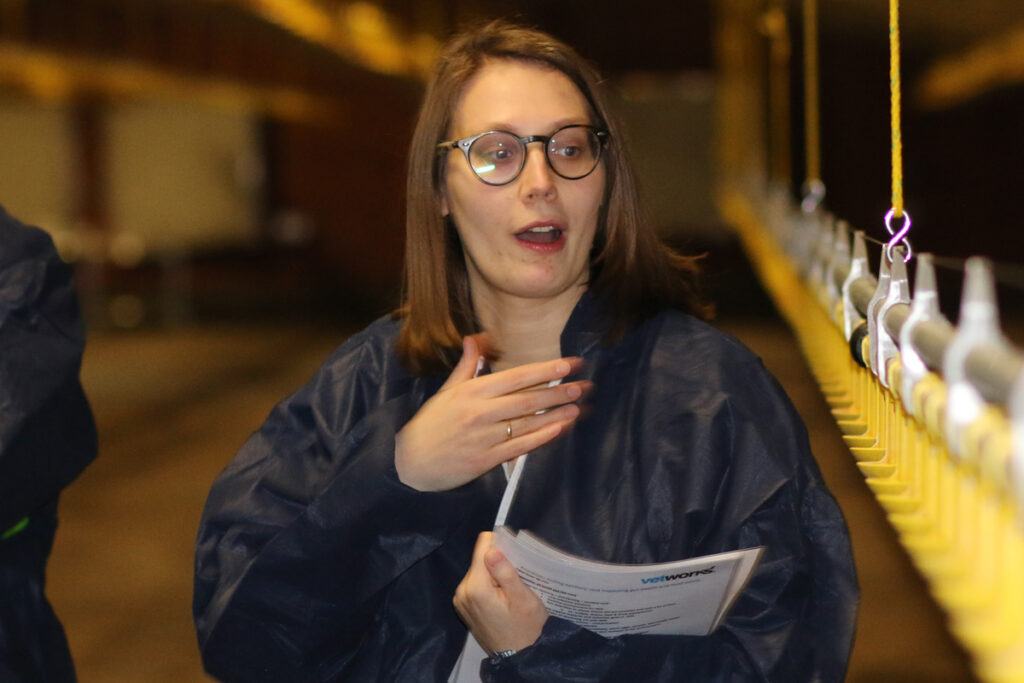
Necropsy and sampling techniques: How to measure your respiratory status
The necropsy and sampling techniques portion of the training is particularly important as it teaches you how to properly measure the respiratory status of the bird and collect samples for testing. This information is crucial to prevent the spread of disease and ensure that birds remain healthy.
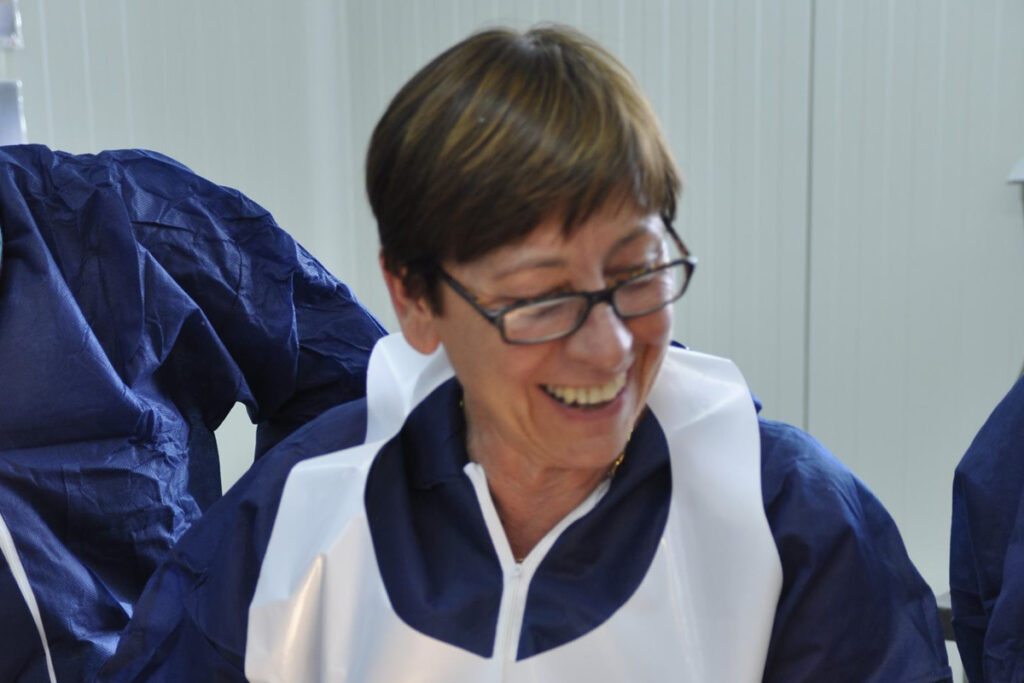
Other bacterial respiratory pathogens (Infectious Coryza, Pasteurellosis, Chlamidia Psittaci, Gallibacterium Anatis and TBC
There are a variety of respiratory bacterial pathogens that can infect poultry and it is important that you are familiar with all of them.
Infectious coryza is a disease caused by a bacterium called Haemophilus paragallinarum. It affects the upper respiratory tract of chickens and can cause severe disease.
Pasteurellosis is another bacterial disease that can affect poultry. It is caused by the bacterium Pasteurella multocida and often leads to pneumonia.
Chlamydia psittaci is another dangerous bacterium that can cause respiratory infections in poultry.
Finally, TBC and Gallibacterium anatis are two other bacteria that can also cause respiratory infections in poultry.
Vaccination in broilers, layers and breeding stock ; guidelines for vaccination and how to spot mistakes made by vaccination teams
An important topic covered in the training on respiratory health in poultry is vaccination. Proper vaccination is essential for the prevention of respiratory disease in chickens.
The training will cover everything from administering the vaccine to recognising mistakes that vaccination teams might make.
How to make an effective monitoring programme: cost-effective surveillance
There are different methods of monitoring, but it is important to choose one that is both cost-effective and practical.
One common method of monitoring is the use of sensors that can be placed in the birds’ accommodation to measure various parameters such as temperature, humidity and air quality.
Other methods of monitoring include visual observation and post-mortem examination.
Regardless of the method used, it is important to have a clear understanding of the respiratory system to identify potential problems.

Workshop on respiratory health in poultry
In our workshop you will analyse real case reports of respiratory diseases in poultry. This will help you to better understand the symptoms of respiratory disease and identify possible causes. Also here, you will have the opportunity to ask questions and receive expert advice from our staff.
Certification quiz
The certification quiz at the end of the training ensures that participants have understood the key concepts covered.
The final session of the training summarises the key learnings and encourages participants to put into practice what they have learned. By attending this type of training, poultry industry workers can gain the knowledge and skills they need to keep their birds healthy and minimise the spread of respiratory diseases.
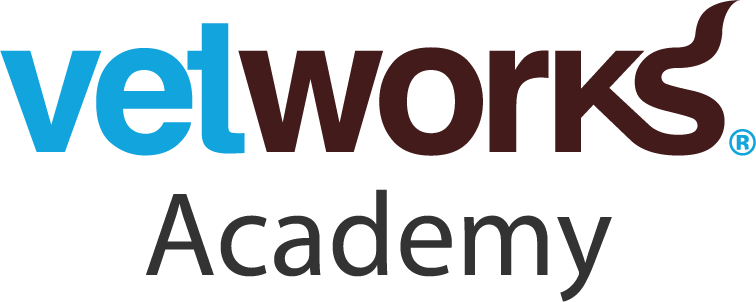
Why should you attend our poultry respiratory health training ?
Attending one of our training sessions is a great way to learn more about respiratory health in poultry. It is also a great opportunity to interact with other professionals in the industry.
Our workshops provide an opportunity for open discussion and exchange of ideas, which can lead to improved expertise and knowledge about respiratory health in poultry.
How can I attend the respiratory health training ?
Are you interested in learning more about respiratory health? Then you may be wondering how you can participate in the respiratory health training.
There are two options: our live training in Belgium or our online streaming training. The live training offers the advantage that you can interact directly with the trainers and other participants. You also have the opportunity to see the equipment and techniques up close. However, live training requires you to travel to Belgium (or another location where the training is offered). This option may not be feasible for everyone.
Our online streaming training is a great option for those who cannot travel. You can watch the training from anywhere in the world and still have access to the same high-quality content. And if you have any questions, you can always contact us during the live streaming.
Info: International Conference on Poultry Intestinal Health
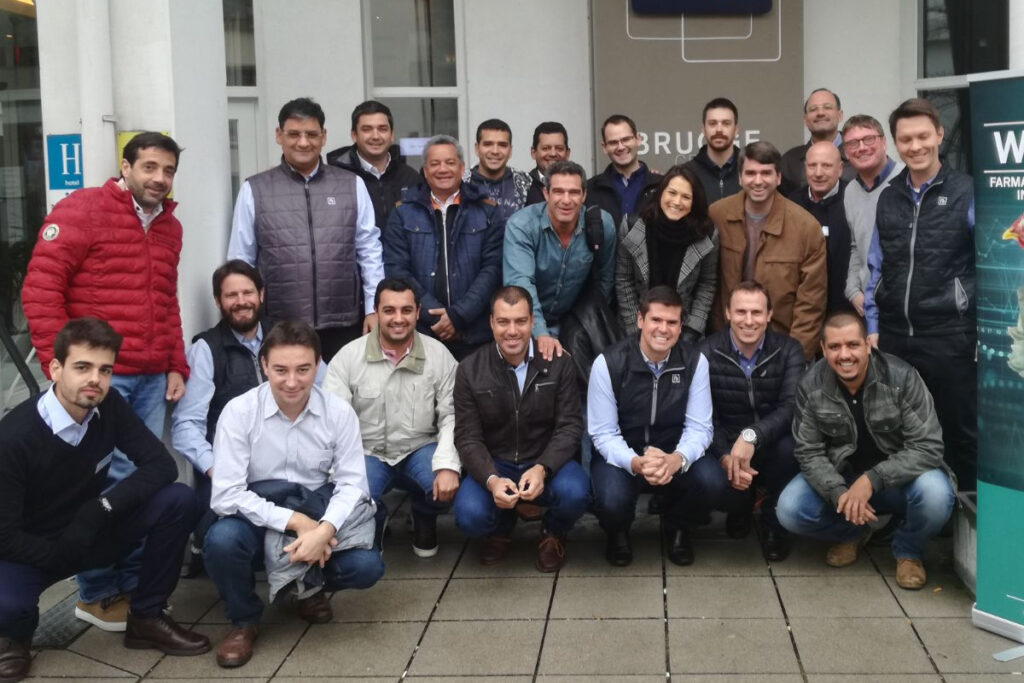
Respiratory health in poultry: training – Contact Vetworks
Respiratory disease in poultry is one of the biggest health problems worldwide. Poultry farmers and veterinarians are always looking for the best way to protect their flocks.
Live training sessions on respiratory diseases in poultry are a great way to keep up to date with the latest research and developments.
In addition, customised poultry training can be tailored to your specific needs and is a great way to ensure your staff are properly trained.
Contact Vetworks if you have any question, or register directly for our respiratory training courses. Or order a customised training course for your poultry company or poultry farm.
More poultry trainings:
Parasitology course for poultry professionals
Reducing antimicrobial use in poultry farming – antibiotics reduction course
- Vetworks is the leading provider of respiratory training courses for poultry professionals
- Respiratory diseases in poultry
- What is respiratory health in poultry and why is it important ?
- Why you should attend Vetworks' respiratory education course
- Why is respiratory disease management in poultry important for your business ?
- Topics included in the respiratory health training for poultry
- Respiratory health in poultry: training – Contact Vetworks

